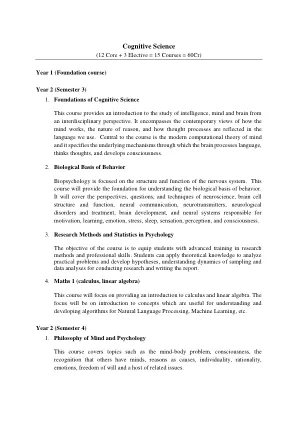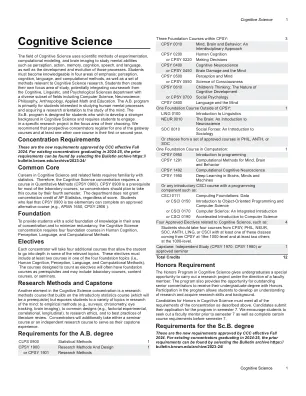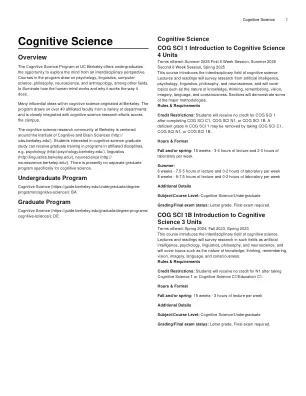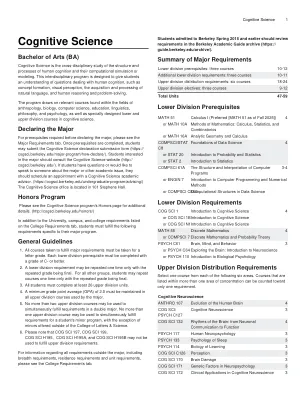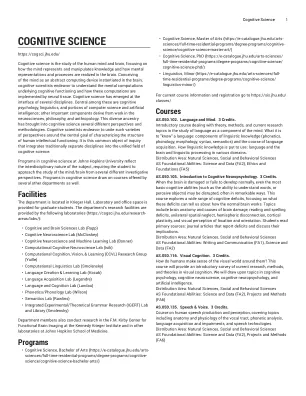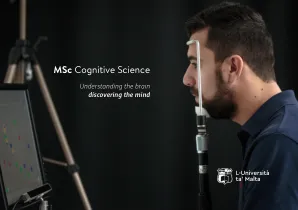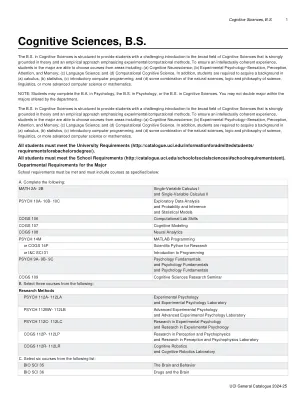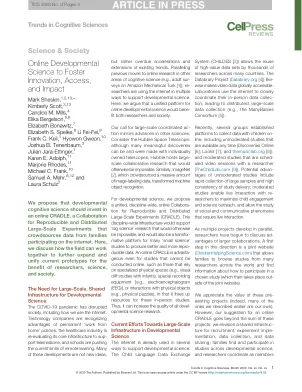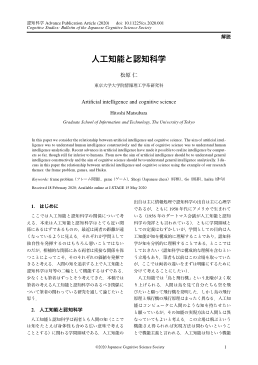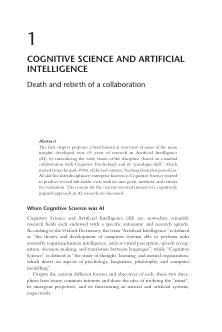XiaoMi-AI文件搜索系统
World File Search System认知科学
认知科学领域使用科学的实验、计算建模和大脑成像方法来研究感知、行动、记忆、认知、言语和语言等心理能力,以及这些过程的发展和演变。学生必须掌握四个重点领域:感知、认知、语言和计算方法,以及与认知科学研究相关的一套方法。然后,学生创建自己的重点研究领域,可能将认知、语言和心理科学系的课程与计算机科学、神经科学、哲学、人类学、应用数学和教育等多个领域相结合。AB 课程主要面向对研究人类心理过程和获得心理研究方向感兴趣的学生。Sc.B. 课程专为希望在认知科学方面发展更强背景的学生而设计,要求学生参与他们选择的重点领域的特定研究项目。我们建议有意向的集中学习者在第一年或第二年注册一门入门课程和至少一门其他核心课程。集中学习要求
认知科学
COG SCI 112 揭秘用户体验背后的认知科学 3 个学分 开课时间:2025 年夏季第二个 6 周课程,2025 年春季 在日益数字化的世界中,了解人类认知与技术之间的相互作用对于设计和有效使用技术至关重要。本课程探讨人类思维与数字界面之间的相互关系,重点研究认知科学(包括认知负荷、注意力、记忆力、感知和决策)如何塑造技术并被技术塑造。学生将分析现有应用程序并创建自己的应用程序,深入了解基于认知科学的 UX 原则,以创建直观、易用且高效的设计。通过动手研究和应用程序原型设计,学生将弥合理论与实践之间的差距,提高他们的 UX 设计技能。 目标和成果
认知科学
总体和高年级专业课程成绩均达到平均绩点要求的学生可在高年级申请荣誉课程。荣誉课程的授予取决于提交的高质量论文,该论文基于认知科学系合格成员的独立研究(https://cogsci.berkeley.edu/major-program/honors-program/list-potential-honors-project-first-readers/),并以圆满完成所需的研究和写作为标志。论文评估首先由教师导师负责,然后由第二位读者负责,两者均由学生负责。导师和第二位读者负责决定 (1) 论文是否具有荣誉质量,以及 (2) 如果具有荣誉质量,则授予哪个级别的荣誉:荣誉、高级荣誉或最高荣誉。有关更多详细信息,请参阅认知科学课程的荣誉页面。(http://cogsci.berkeley.edu/honors/)
认知科学
Cognitive science is the study of the human mind and brain, focusing on how the mind represents and manipulates knowledge and how mental representations and processes are realized in the brain. Conceiving of the mind as an abstract computing device instantiated in the brain, cognitive scientists endeavor to understand the mental computations underlying cognitive functioning and how these computations are implemented by neural tissue. Cognitive science has emerged at the interface of several disciplines. Central among these are cognitive psychology, linguistics, and portions of computer science and artificial intelligence; other important components derive from work in the neurosciences, philosophy, and anthropology. This diverse ancestry has brought into cognitive science several different perspectives and methodologies. Cognitive scientists endeavor to unite such varieties of perspectives around the central goal of characterizing the structure of human intellectual functioning. It is this common object of inquiry that integrates traditionally separate disciplines into the unified field of cognitive science.
人工智能与认知科学
Harnad,S。(1990) Kodansha。 3。Matsubara,J。和Kawamura,H。(2019年)。 , 240–246。 McCarthy, J., & Hayes, P. (1969). 从人工智能的角度看一些哲学问题。收录于 B. Meltzer 和 D. Michie (编),机器智能,4 (第 463–502 页)。英国爱丁堡:爱丁堡大学出版社。 (McCarthy, J. Hayes, P. Miura (译) (1990). 人工智能为什么需要哲学?框架问题的起源和发展。哲学书房) Searle, J. (1980). 思想、大脑和程序。行为与脑科学,3,417–457。 Shanahan, M. (1997). 解决框架问题。马萨诸塞州剑桥:麻省理工学院出版社。 Silver, D., Huang, A., Maddison, CJ、Guez、A.、Sifre、L.、van den Driessche、G.、...... Hassabis、D. (2016)。利用深度神经网络和树搜索掌握围棋游戏。《自然》,529,445–446。Watanabe、A. 和 Yasuki、K. (2007)。Bonanza 与游戏大脑:最强的将棋软件会超越人类吗?角川书店 Yamamoto、K. (2017)。人工智能是如何超越大师的? ─最强将棋AI开发者Ponanza教授

